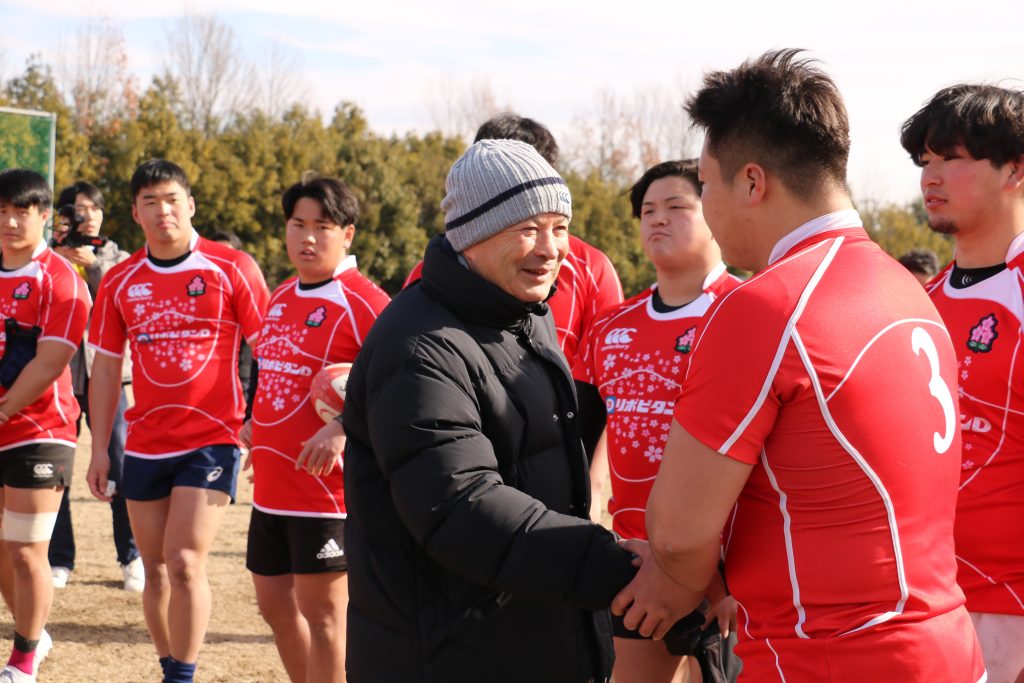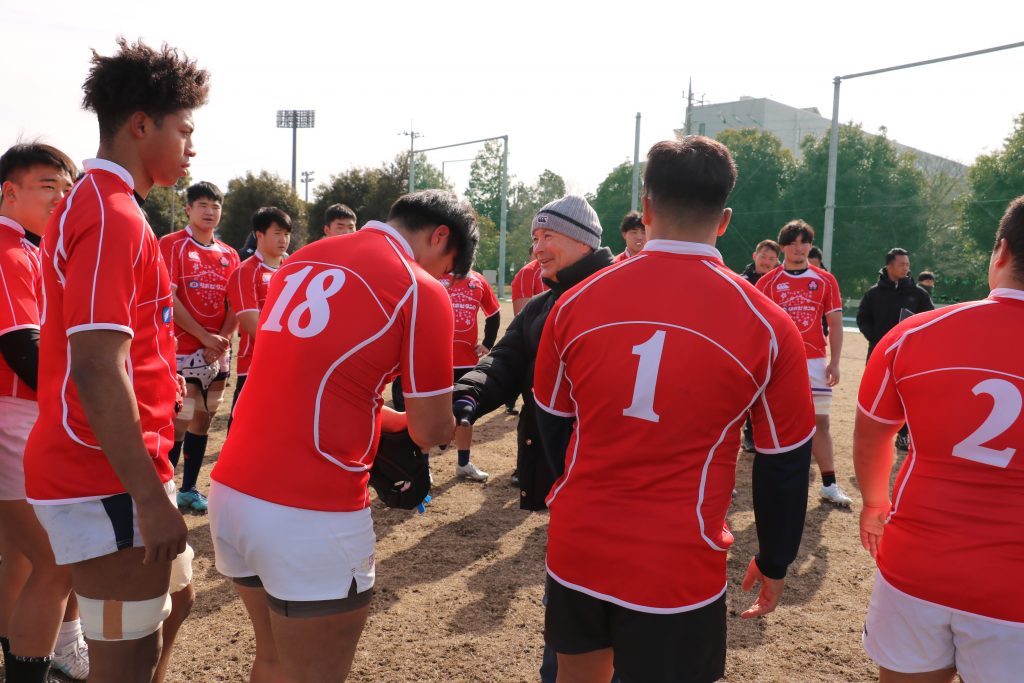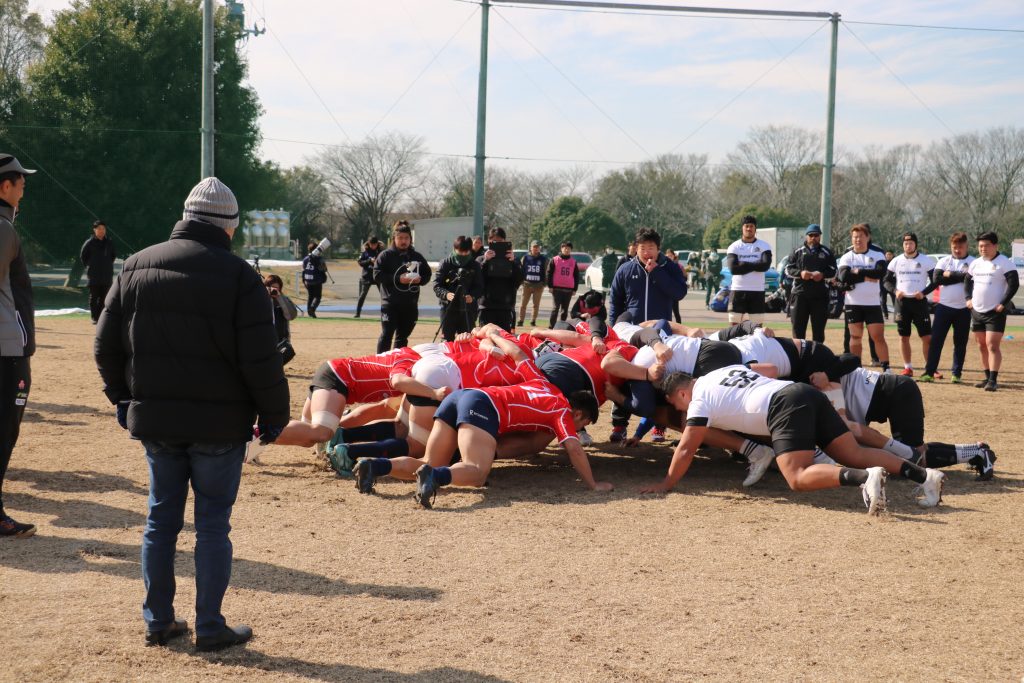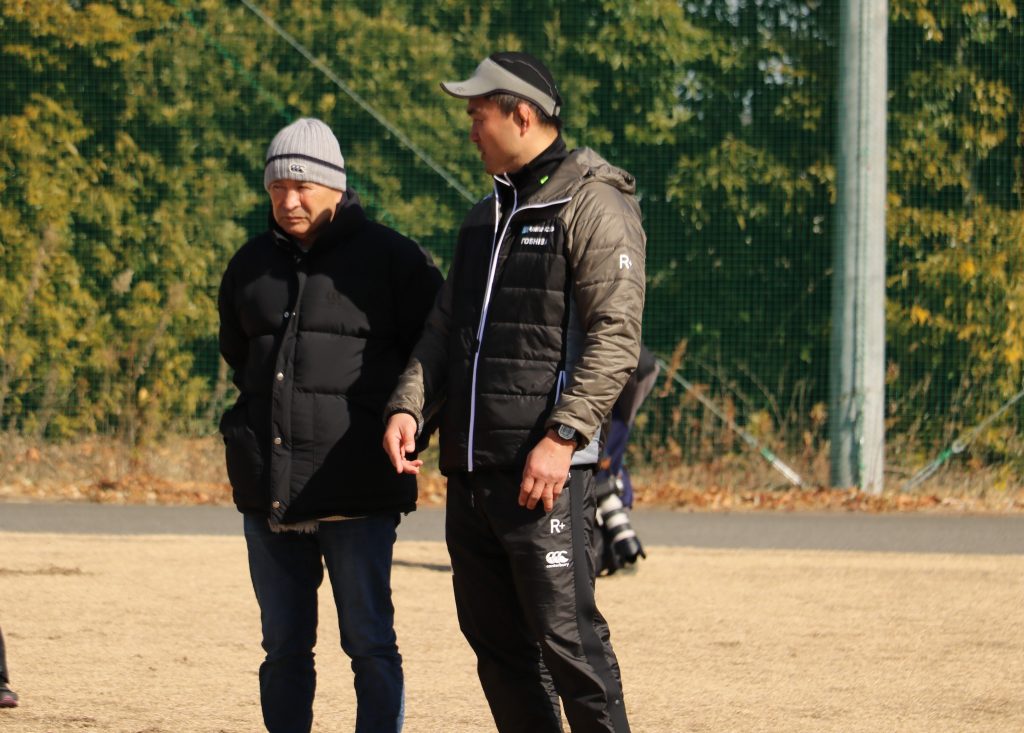
Nurturing the Next Generation of Brave Blossoms

Since his return to the JRFU, Brave Blossoms Head Coach, Eddie Jones has been formulating his long-term vision for the game in Japan around a concept he calls ‘chosoku rugby’, or super-fast ruby. Japan is already recognised internationally for its high-tempo style and high-skill application of rugby’s fundamentals of catch-pass that form the basis of its quick ball movement and positive attacking style. However, Jones wants to take the concept even further, to stretch and press the fabric of chosoku rugby into every facet of the Japanese game.
“Fast rugby is already a core identity of our game. Jamie Joseph, Tony Brown, and Shin Hasegawa did a great job in strengthening this identity and intrenching it into our playing style. I want to use this foundation, evolve it and at the same time, take a different approach,” commented Jones.
“Playing fast means not only moving fast, but also thinking fast. If you watch League One, we have three of the best players in the world in Cheslin Colby, Richie Mo’unga and Kwagga Smith playing in the league. All three have similar body types to Japanese players. These guys are really strong, move quickly and make decisions faster than other players. We want to identify players with the potential to develop these qualities throughout Japanese rugby.”
Jones has been clear on the need to instil the ethos of chosoku rugby from the ground up. It needs to filter out into local clubs and age-group rugby, while becoming concentrated and more pronounced within representative teams and in elite competitions such as Japan’s National High School and University Championships.
“I’m watching a lot of high school, university, and League One games from the perspective of looking for players who are doing things that can’t be coached. Players who have a sense and feel for the game and who want to grow and get better by constantly challenging themselves. In every sport, anywhere in the world, when you fight hard, work hard, and reach a certain level, you are satisfied, which is human nature, but I want to find players who are not satisfied, who always sitting on front of their chairs and ready to go at any moment.”
Last week, the JRFU announced the Japan National High School Team squad ahead of their three-match tour to Italy in March where they will take on Italy’s U18 and U19 National Teams. While at the U20 level, Japan’s U20 team will compete at the World Rugby U20 Trophy 2024 in Scotland this July and an announcement is also expected soon on the schedule for the 2024 U20 Pacific Challenge between Japan, Fiji, Samoa, and Tonga.
Jones will have ample opportunity to see the next generation of Brave Blossoms in action and asses which players have the potential to deliver his vision of chosoku rugby. “I’ve already been involved in the selection process for our age group representative sides and will participate in both the U20 and High School National Team camps. Moving forward the Brave Blossoms coaching team will work together with the age group coaches to guide and support them. We want to unify as much as possible a clear philosophy and concept in terms of the style of play we want to develop across all levels.”

During his time watching high school, university, and League One, Jones has seen some talent that has impressed him. “There are some decent players coming through and I’ve worked with the National High School Team and U20 National Team coaches to draw up a list of young players we want to watch and invest in. It’s really important that we strengthen High School and U20 in unison and that they’re training, developing and playing towards the same style.”
While the players are focusing on representing Japan at age group level, for some the promotion to higher honours might come faster than they imagine. With the Brave Blossoms set for generational change as several champion veterans approach the twilight of their careers, opportunities for younger players are always there. “Generational change is a fact of life. From the 2015 squad, 10 players made the 2019 World Cup and then only three in 2023. While it’s not impossible that some of the players from 2015 will make it to the next World Cup, it will be necessary to find young players to step in and carry things forward.”

“We want to link all the Japan representative teams together. The philosophy being that we want to select players who can play the style we want to play at every national team level. We want to unify the same mindset and play the same kind of rugby. Test matches are very important, so we need to select the best and strongest players, but the JAPAN XV will continue to play against top teams. This way we can successfully identify and develop young players through the experience of playing against elite teams. To develop the best players for the national team, we will need to do it in much more consistent manner. To strengthen the national test team, we want to be consistent in how we strengthen the High School and U20 National Teams,” concluded Jones.